IHAC Past Series and Talks
With human behavior at the center of the most pressing issues facing humanity, other animals, and the environment, the Institute for Human-Animal Connection aims to reflect, explore, and discuss how human change mechanisms at the individual, community, and organizational levels are needed to create sustainable improvements for all. Past IHAC lectures and webinar series topics featured natural and social science-informed education, research, and advocacy work to create a more compassionate and humane world, one community at a time.

DIMENSIONS OF HUMANE COMMUNITIES WEBINAR SERIES
The Dimensions of Humane Communities Online Lecture series is broken into two parts. Part one, the Community-Based Human-Animal-Environment Interactions segment, focuses on efforts to understand and support shared systems that uplift the health and wellbeing of our inclusive communities. Part two, the Intersections of Global Health & Social Justice segment, focuses on the interconnected systems of human, animal, and environmental coexistence on a continuum from harmony to discord.
Webinar recordings and a certificate of completion to document one professional-development contact hour are available at no cost to current DU students, faculty and staff; sessions are $10 each for the general public.
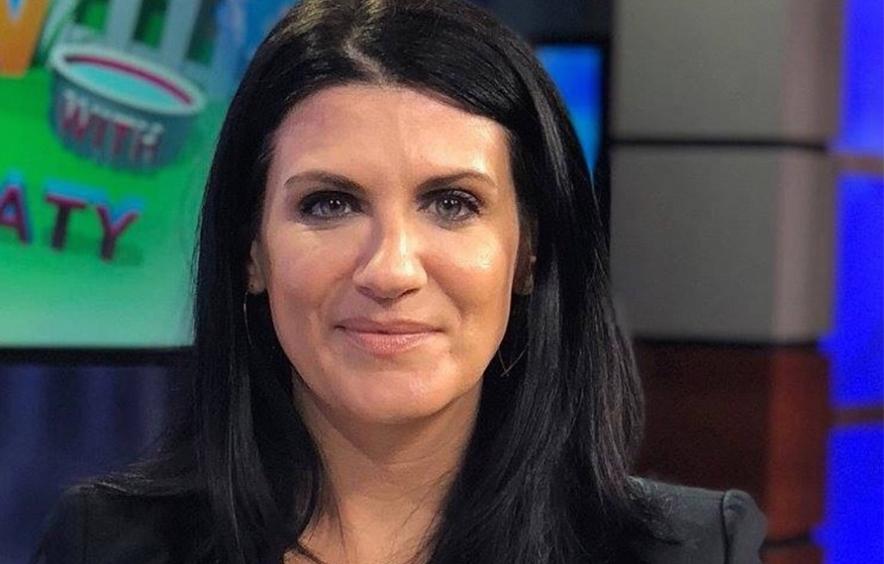
Why Access to Pet Resources is a Social Justice Issue
The first edition of the Dimensions of Humane Communities online lecture series featuring Amanda Arrington, Senior Director of the groundbreaking Pets for Life (PFL) program at the Humane Society of the United States is now available as a recording! In this lecture Amanda discusses how pet ownership crosses all geographic, racial, ethnic and socio-economic boundaries, but access to information and services does not. Institutional bias and systemic inequity can have a negative impact on pets and there is a great need to understand and deepen the connection between animal welfare and social, racial, and economic justice. Discounts still apply and upon registration, you will receive a link to view the recording of this important event.
Cost: $10 general / Free to current DU students, faculty, and staff
-
Bio: Amanda Arrington
Amanda Arrington is the Senior Director of the groundbreaking Pets for Life (PFL) program at the Humane Society of the United States and previously served as a lobbyist and North Carolina State Director for HSUS. With PFL, Amanda guides a social justice-driven approach to create equity in and access to pet resources and information for people in underserved communities. Under her leadership the program has been implemented in over 50 markets across the country and is working to make companion animal welfare a more just and inclusive movement.
Amanda is also the founder and Executive Director of Beyond Fences, a non-profit based in Durham, NC. The organization builds trust and relationships in communities by providing no-fee pet services and support for people living in underserved areas.
Amanda currently serves as vice-chair of The Association for Animal Welfare Advancement’s OnPOINT committee on increasing diversity in animal welfare, served three years as the chair of the Durham County Animal Control Advisory Committee and on the board of the Durham Interneighborhood Council. Amanda has received many awards for her community outreach work including the prestigious American Veterinary Medical Association Humane Award in 2018.
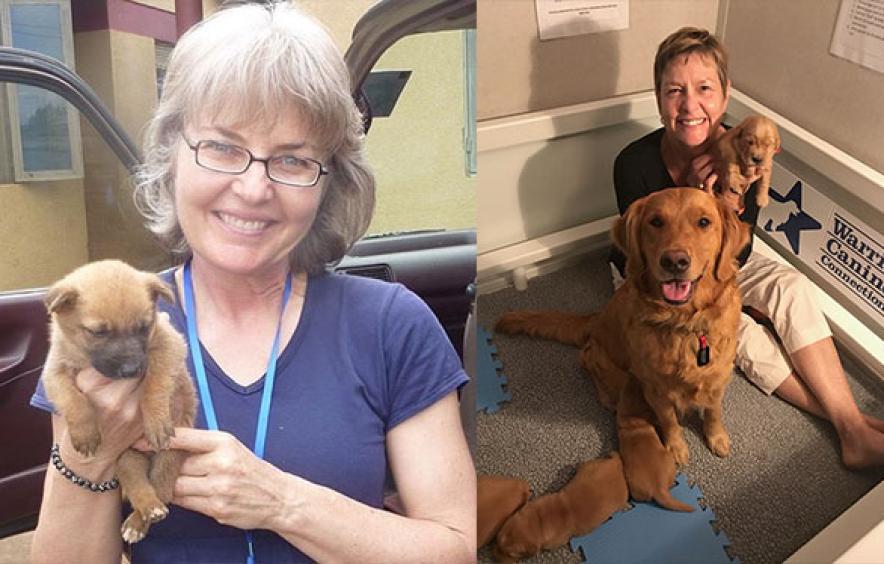
Peaceable Kingdom: The Big Fix in northern Uganda
Sarah Schmidt, the founder and president of The Big Fix Uganda’s Comfort Dog Project and Meg Daley Olmert, Director of Research for the Warrior Canine Connection will present the first One Health animal assisted therapy model fighting cruelty and despair in Northern Uganda. The Big Fix Uganda—a non-profit , based in Port Townsend, WA--operates the only veterinarian hospital in Northern Uganda. Since 2012, The Big Fix has provided its services, 365 days a year, in its quest to ease the suffering of animals in Northern Uganda and eradicate the deadly threat of rabies. The fate of Northern Uganda’s dogs is not much better than its people. A 20-year-long vicious civil war has left 70 percent of the survivors impoverished and traumatized. In 2015, BIG FIX introduced The Comfort Dog Project to teach people who have never known dogs as friends, to build loving bonds with dogs that can save both their lives. Against all odds, Guardians and their Comfort Dogs are forging family bonds where there were none, creating a powerful psychobiological buffer against despair. Together both are safer and happier, living proof of a Big Fix. Discounts still apply and upon registration, you will receive a link to view the recording of this important event.
Cost: $10 general / Free to current DU students, faculty, and staff
-
Bio: Sarah Schmidt
Sarah Schmidt is a former lawyer who left the practice of law to pursue her work in animal advocacy. During her 20 years practicing law, she served as pro bono legal counsel for many animal rescue and advocacy organizations and taught Animal Law at San Joaquin College of Law. In 2002, she founded Central Valley Coalition for Animals, an IRC 501(c)(3) which was formed to develop cooperative projects with the fragmented animal welfare community in California's Central Valley. That work eventually led to creation of The BIG FIX, a spay/neuter assistance program. In 2005, The BIG FIX began small projects in developing countries and in 2012, Sarah launched The BIG FIX Uganda, with the mission of improving the health and well-being of animals and people in the extremely impoverished area of Northern Uganda. The BIG FIX Uganda now provides the region's only animal welfare services, including a veterinary hospital open 365 days a year, rescue/rehabilitation/re-homing of dogs and cats, and Uganda's only animal assisted intervention program (The Comfort Dog Project) which uses canine companions to assist war trauma survivors in their recovery from PTSD.
-
Bio: Meg Olmert
Meg Daley Olmert is a world-renowned expert on the neurobiology of the human-animal bond and its therapeutic effects. In 2009, her groundbreaking book, Made for Each Other: The Biology of the Human-Animal Bond, was published to international acclaim. Scholars from a wide range of disciplines applauded the clear and rigorous scientific case Olmert made that human civilization and animal domestication are an evolutionary coincidence of our shared neurobiological heritage. It is this shared primal brain network that creates the sense of calm and attraction in which social bonds—among and between species—can flourish. This affiliative mind/body state is also essential to the wellbeing of all social mammals.
In 2011, Olmert helped found Warrior Canine Connection, Inc. a non-profit organization that provides an innovative and highly effective service dog training therapy program for the reduction of combat trauma symptoms at leading military and veterans medical centers. Meg is currently acting as WCC’s director of research on two federally funded research protocols to investigate the efficacy of this program on trauma patients at Walter Reed National Military Medical Center.
Meg continues to publish and collaborate with scientists worldwide, is a much sought-after guest speaker at academic and professional conferences, and has given two widely viewed TEDxTalks. She is also the scientific advisor to The Comfort Dog Project in Uganda—saving the hearts and minds of traumatized people and dogs against all odds.

The Missed Opportunities of Shying Away from Public Policy Engagement
Vince Wong, Director of Collective Impact for the Michelson Found Animals Foundation talks about how public policy engagement is a long, drawn-out process that we tend to shy away for myriad reasons – time, resources, attention, anxiety, exhaustion, fear, inexperience – just to name a few. But to effect long-term and sustainable change, you need multiple stakeholders – corporate, nonprofit, community, philanthropy, and yes even government – from diverse areas to all come together on collective action that actually makes a difference. In this session we will review some of the challenges, why and how to overcome them, and a bird’s-eye view on current examples of non-traditional, yet successful public policy engagement that drives collective impact benefiting animals and their families. Discounts still apply and upon registration, you will receive a link to view the recording of this important event.
Cost: $10 general / Free to current DU students, faculty, and staff
-
Bio: Vince Wong
With over two decades of work in legislative affairs and community participation, Vince Wong serves as Director of Collective Impact for the Michelson Found Animals Foundation. As Found Animals' liaison to elected officials, government agencies and civic organizations, he spearheads its public policy and civic engagement initiatives including research on the vital effects pets have on human health and aligning the conversation with what pets in society means.
Working at the intersections of myriad social justice issues he presently serves on the Liberty Hill Foundation Community Funding Board and National LGBTQ Task Force National Action Council. He is a graduate of Leadership Los Angeles and was honored with the Southern California Leadership Network's Visionaries Award in 2017. A lifetime and devoted University of Southern California Trojan, he is an emeritus member of the USC Board of Governors and recipient of the USC Widney Alumni Award for his volunteer service.
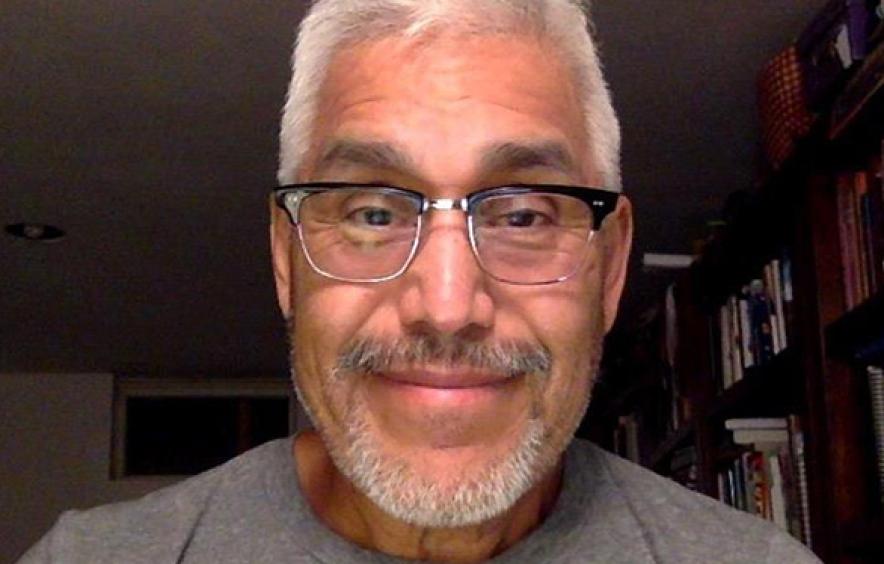
Traditional Stories of the Relationship between the Arikara (Sahnish) and the Animal World
The Arikara, or more accurately “Sahnish,” are a northern Great Plains tribe currently living on the Ft. Berthold Indian Reservation in central North Dakota, USA. Until the late eighteenth century, the Arikara were one of the largest and most influential Native American groups on the northern plains. For centuries they have lived along the Missouri River, first in present South Dakota, later in what is now North Dakota. Genetic research also suggests that they may have spent time in southern Mexico.
Author and Nobel Prize winner, Doris Lessing, once described teaching stories, as the “most valuable of treasures in human heritage.” Teaching stories serve several functions: They provide important life lessons and enable to find solutions in everyday problems; remind us of our responsibilities and help shape our identity; they teach us about morality and courage; and the rewards and consequences of appropriate an inappropriate behaviour. In this session, Dr. Michael Yellow Bird (Arikara) will share a series of short teaching stories of the relationship between the Arikara people and the animal world. The stories are intended to nurture participant’s understanding of the important connection between humans and animals and how renewing this tradition can help restore this relationship. Discounts still apply and upon registration, you will receive a link to view the recording of this important event.
Cost: $10 general / Free to current DU students, faculty, and staff
-
Bio: Michael Yellow Bird
Dr. Michael Yellow Bird is Dean and Professor of the Faculty of Social Work at the University of Manitoba. He is a citizen of the Three Affiliated Tribes of the Fort Berthold reservation in North Dakota. He has held faculty appointments in the Schools of Social Work at the University of British Columbia, University of Kansas, Arizona State University, and Humboldt State University, and was Professor of Sociology and Director of Indigenous Tribal Studies at North Dakota State University.
His research and community work focus on Indigenous Peoples health; Indigenous community-based organizations; the effects of colonisation and methods of decolonisation; implementing mindful decolonization approaches with Indigenous Peoples and settler allies; the cultural and social significance of Rez dogs; and integrating Indigenous ancestral and western sciences into the Medicine Wheel to create a unique model of social work practice.
Dr. Yellow Bird is the author of numerous scholarly articles, book chapters, and research reports. He is the co-editor of four books: For Indigenous Eyes Only: The Decolonization Handbook, 2005; For Indigenous Minds Only: A Decolonization Handbook, 2012; Indigenous Social Work around the World: towards Culturally Relevant Education and Practice, 2008; and Decolonizing Social Work, 2013 (a 2014 “Choice Magazine” Outstanding Academic Title). He is the co-author of two forthcoming books: Decolonizing Holistic Pathways Towards Integrative Healing in Social Work and A Sahnish (Arikara) Ethnobotany.”
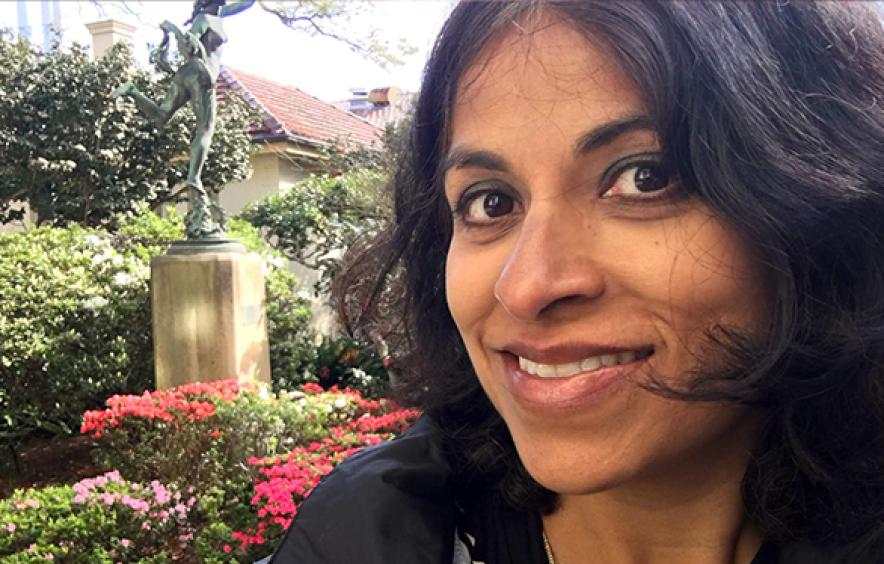
Educating Human Children about Animal and Other Alterity: A critical foundation for moving toward a plant-based and more compassionate society
With intensified animal agriculture’s alarming imprints in both the cause and effects of global pandemics, climate change, and animal suffering increasingly visible, we see more public discourse questioning the future of animal-based consumption and the need to transition to plant-based diets. As animal scholars have shown in Western societies, logical rationales and scientific studies must compete with deep-seated cultural and religious teachings and entrenched adult identities to persuade people to change their animal-centered diets. Even for those who successfully make a transition, dominant cultural norms and codes make a switch to plant-based diets difficult to sustain. In diet, as with so many areas, the law is a limited tool to effect social change where it goes against prevailing social norms. After outlining the above, this lecture argues that the challenges in achieving behavioural change in adults in such circumstances indicates the need for systemic childhood education before behaviors and ideologies become entrenched. I argue that education that combats the anthropocentric but also gendered and colonial cultural messaging human children receive should be a foundational pillar of any advocacy or policy agenda directed at transitioning to plant-based societies. I discuss how this cultural messaging can be delivered through a critical iteration of humane education or what I call “alterity education”. Disrupting the Othering/dominating messages children receive and internalize about animals, the earth’s “resources”, and human Others, and cultivating instead their empathy toward nonhuman beings and alternative subjectivities, is the essence of “alterity education”. Legal reform to support this type of interspecies education in schools, libraries, and early childhood education is required as part of a multi-pronged approach to create plant-based and more compassionate societies. Discounts still apply and upon registration, you will receive a link to view the recording of this important event.
Cost: $10 general / Free to current DU students, faculty, and staff
-
Bio: Maneesha Deckha
Maneesha Deckha is Professor and Lansdowne Chair in Law at the University of Victoria in Victoria, British Columbia, Canada. Her research interests include critical animal law, feminist animal care theory, postcolonial theory, vulnerability and precarity studies, health law, and reproductive law and policy. Her interdisciplinary scholarship dedicated to an intersectional and critical animals studies analysis of law and legality has appeared in American Quarterly, Hypatia, the Journal of Critical Animal Studies, and the McGill Law Journal, among other venues, and has been supported by the Canadian Institutes of Health Research and the Social Sciences and Humanities Research Council of Canada. She has held the Fulbright Visiting Chair in Law and Society at New York University for her work on animals, culture and legal subjectivity and currently serves as Director of the Animals & Society Research Initiative at the University of Victoria as well as on the Editorial Boards of Politics and Animals and Hypatia. She is an inaugural fellow of the Brooks Animal Studies Academic Network and is a graduate of McGill University, the University of Toronto, and Columbia University. She is a non-practising member of the Law Society of Ontario. Discounts still apply and upon registration, you will receive a link to view this important event.
Cost: $20 general / $15 GSSW/IHAC affiliate with code IHACFriend (alumni, adjunct, and field instructors) / free to DU current students, faculty and staff with code TeamIHAC
Bundle Discount: Receive 20% off when you purchase all three lectures in this segment with the code Humane3 / GSSW/IHAC affiliates receive 30% off a purchase of all three lectures with the code Humane3Friend
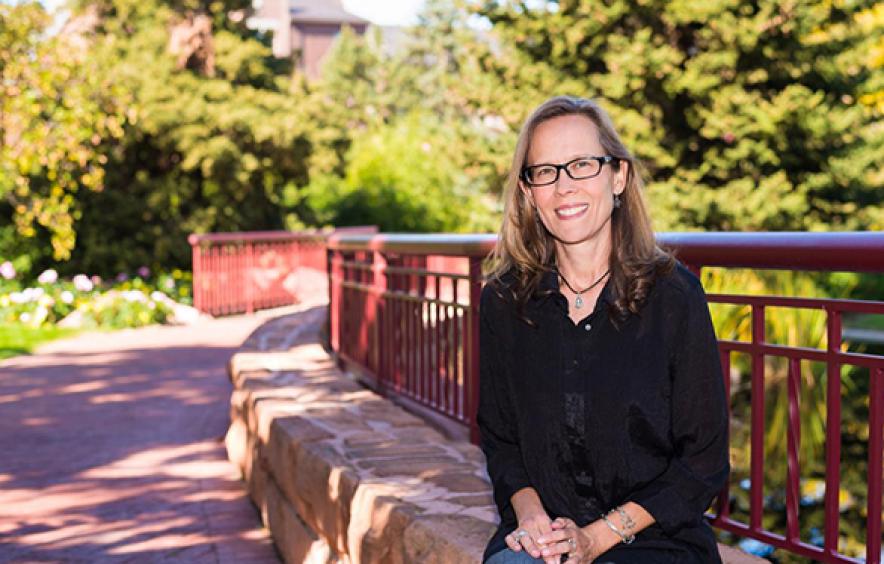
The Need for Humane Education Has Never Been Greater
But what is humane education? Don’t worry if you find yourself unsure, or if you have never even heard of humane education. Recent research involving 829 K-12 educators in the U.S. found that 72% had not heard of humane education. However, after learning about it, 96% stated they would like to see it implemented in their schools. Humane education enjoys a history dating back to the mid 1800s, however there have been stretches of time within which it was nearly dormant. Recently there has been a resurgence, in part due to a global trifecta of human induced interconnected challenges in violations of human rights and well-being, the protection of other species, and mass environmental degradation. Humane education is a comprehensive and needed methodology that equips learners with the tools to think critically to identify impactful solutions to these interconnected global challenges. Humane education encourages compassion, respect, empathy and inclusion toward other humans, and learners equally develop these sensitivities to other living beings and the natural world which sustains our species. Humans are facing unprecedented challenges, yet, in the words of internationally recognized environmental educator David Orr, schools still educate youth as if there is no planetary emergency. At the Institute for Human-Animal Connection we contribute to the field of humane education through research and development, and the hosting of one of only three formal training programs in the world for professional comprehensive humane educators. In this session, learn more about the promise of humane education and how to get involved in creating a healthy human presence on Earth. Discounts still apply and upon registration, you will receive a link to view the recording of this important event.
Cost: $10 general / Free to current DU students, faculty, and staff
-
Bio: Dr. Sarah Bexell
As Clinical Associate Professor at the University of Denver's Graduate School of Social Work and Director of Humane Education at the Institute for Human-Animal Connection, Sarah aims to help students and society participate in the global movement to protect life on Earth. She conducts research on the efficacy of humane and sustainability education in motivating intervention participants to adopt more humane and sustainable behaviors at the micro, mezzo and macro levels of society. Sarah conducts work in Denver and Chengdu, China. In China, she partners with Sichuan University and the Chengdu Research Base for Giant Pandas.

INTERCONNECTED WEBINAR SERIES
The Institute for Human-Animal Connection (IHAC) Interconnected webinar series explores the human-animal bond and its impact on public health and well-being. Topics explored current systems and best practices related to prevention and intervention of Link violence (the relationship between animal abuse and interpersonal violence), and understanding feline and canine communication and behavior.
Webinar recordings and a certificate of completion to document one professional-development contact hour are available at no cost to current DU students, faculty and staff; sessions are $10 each for the general public.
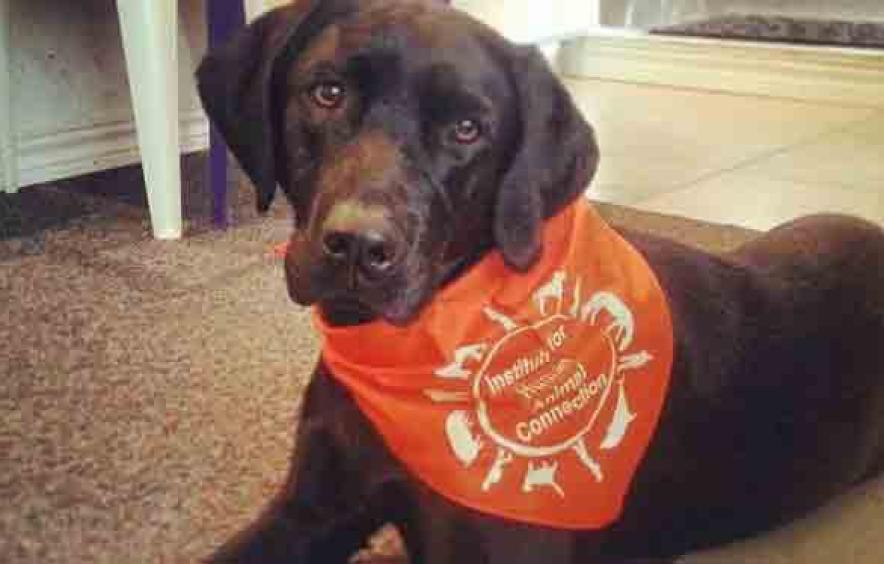
The Co-Occurrence of Animal Abuse and Family Violence -- Where Are We Now?
Since the mid-1970’s there has been a growth in studies and application exploring how animal abuse co-occurs with family violence. This webinar will discuss some of the latest research so that agencies and staff assisting victims of crime are better suited to assist when animals are caught in the crossfire.
Presented by: Allie Phillips, Founder of Sheltering Animals & Families Together (SAF-T), and Co-Founder of Therapy Animals Supporting Kids (TASK).
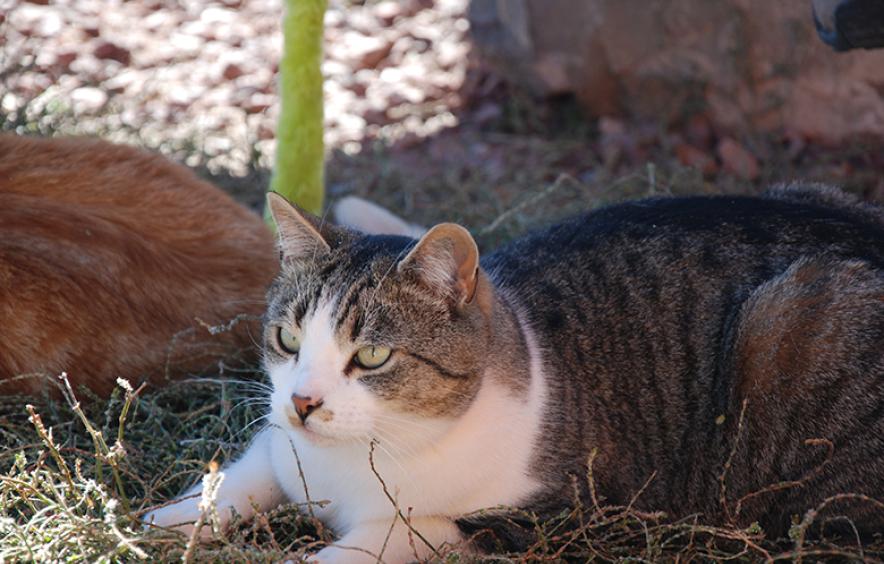
Enhance Your Communication with Your Feline Companion
It's so important to understand what your cat is communicating in order to provide them with a safe environment. This webinar will cover images of feline body postures, uncover what they mean, teach you how to strengthen your observation or "listening" skills and tools to keep your cats safe and happy in a domestic violence shelter.
Presented by: Marissa Martino, CTC, CPDT - KA, Owner of Paws and Reward Dog Training
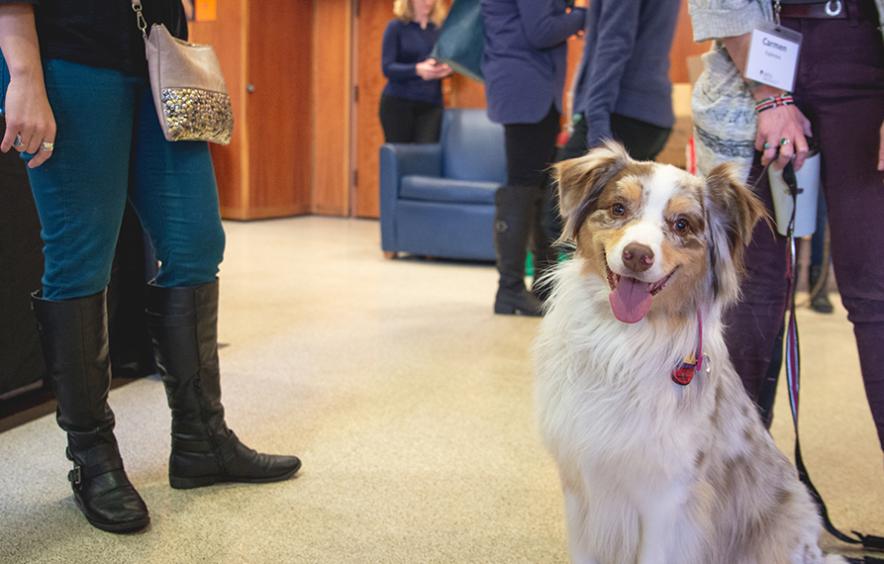
Enhance Your Communication with Your Canine Companion
It's so important to understand what your dog is communicating in order to provide him/her with a safe environment. This webinar will cover images of canine body postures, uncover what they mean, teach you how to strengthen your observation or "listening" skills and tools to keep your dogs safe and happy in a domestic violence shelter. This webinar is perfect for shelter staff to learn or re-learn basic knowledge of dog behavior.
Presented by: Marissa Martino, CTC, CPDT - KA, Owner of Paws and Reward Dog Training

PAST SPEAKER EVENTS
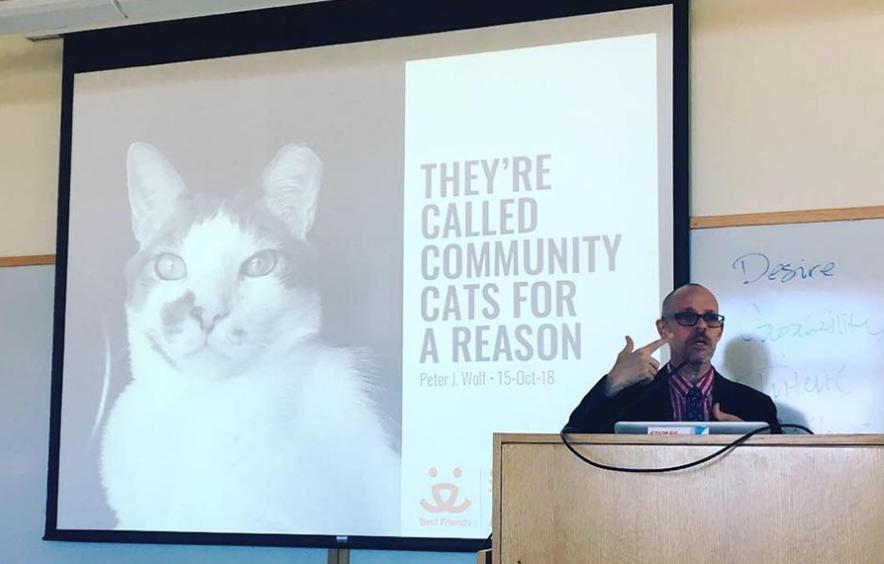
They’re Called Community Cats for a Reason
Peter Wolf joined IHAC in October 2018 to discuss our interactions with community cats as an important dimension of humane communities. Peter is a research and policy analyst with Best Friends Animal Society, a nonprofit animal welfare organization that focuses on outreach to promote pet adoption, animal shelters that minimize euthanasia and spay-and-neuter education. Animal-Assisted Social Work alumna '19 and former IHAC Intern, Amanda Olguin, wrote an article about Peter's visit summarizing the discussion of community cats and social workers in animal welfare. Amanda writes, "Peter sees great value in involving social workers within the animal welfare field. There is a strong human element to animal welfare, and social workers are well positioned to engage with others for improving animal, human and community health. Peter discussed the importance of getting out in communities, showing empathy and building trust with not only individuals who care for these [community] cats, but also those who are seeking solutions."
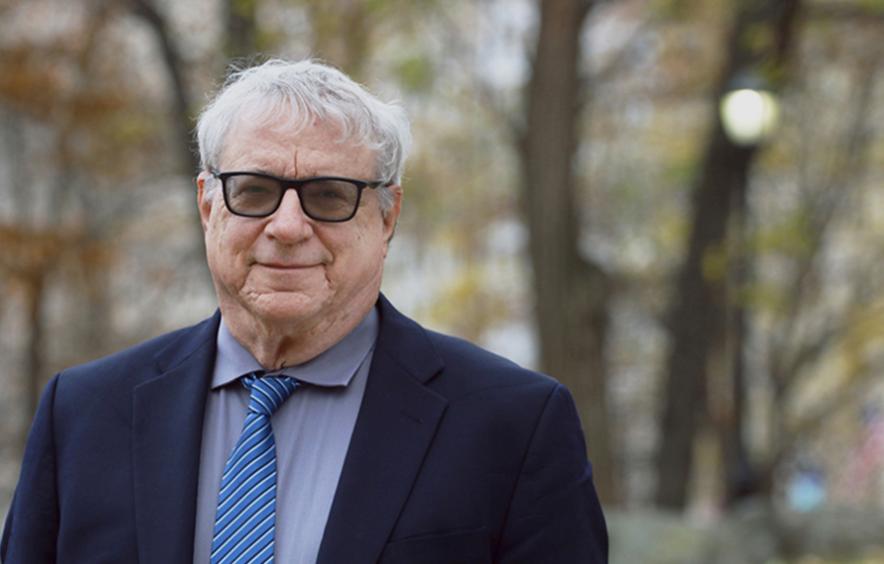
Legal Personhood for Nonhuman Animals
Steven Wise of the Nonhuman Rights Project (NhRP) spoke at a Dimensions of Humane Communities Event at the Graduate School of Social Work in April 2019. The Nonhuman Rights Project is the only civil rights organization in the United States dedicated solely to securing rights for nonhuman animals. During the event Steven discussed how NhRP is seeking to change the legal status of at least some nonhuman animals from that of property to that of persons. Watch Steven’s ted talk to learn more.
Watch Steven's TED Talk